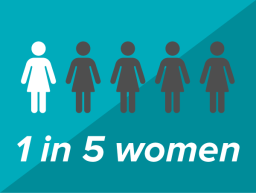Empowering Survivors, Ending Sexual Violence
At Justice Aid our mission is to empower survivors and end sexual violence. We provide comprehensive support, raise awareness, and advocate for systemic change. With a survivor-centered approach, we prioritize their needs and offer tailored support services. Through prevention education, collaboration with partners, and advocacy for policy reforms, we strive to create a society free from sexual violence. Join us in empowering survivors and working towards a future without fear..




SEXUAL ASSAULT AWARENESS MONTH (SAAM)
Sexual Assault Awareness Month (SAAM) is an annual campaign held in April to raise awareness about sexual assault, promote prevention strategies, and support survivors. It serves as a platform to educate the public, challenge societal norms, and foster a culture of consent and respect. Throughout the month, various organizations, advocates, and communities come together to organize events, workshops, and awareness campaigns to address the prevalence of sexual assault and its impact on individuals, families, and communities.
ABOUT SAAM
1. Purpose: SAAM aims to increase knowledge and awareness about sexual violence, support survivors, and prevent future incidents of assault.
2. Prevention: The campaign emphasizes that sexual assault is preventable and encourages individuals to take action by promoting consent, healthy relationships, and bystander intervention.
3. Education: SAAM provides educational resources and materials to help individuals understand the signs of abuse, recognize red flags, and learn how to stay safe.
4. Support: The month also focuses on providing support and resources for survivors, connecting them with organizations that specialize in assisting survivors of sexual assault
5. Community Engagement: SAAM encourages community engagement by fostering conversations, organizing events, and promoting dialogue around sexual assault prevention and survivor support.
6. Awareness Campaigns: Various organizations and agencies participate in SAAM by launching awareness campaigns, sharing survivor stories, and promoting resources to combat sexual violence.
L Lehman
Raising Sons: Educating Against Sexual Violence
As parents, caregivers, and members of society, we play a crucial role in shaping the attitudes and behaviors of our children. To create a safer and more respectful world, it is essential to educate our sons about sexual violence, consent, and healthy relationships. By instilling values of respect, empathy, and equality from an early age, we can contribute to preventing sexual violence and fostering a culture of consent. In this blog, we will discuss some key strategies for educating our sons against sexual violence.
1. Start Early Conversations:
Open and honest conversations about consent and boundaries should begin at an early age. Teach your sons about personal space, respect for others' bodies, and the importance of obtaining permission before touching someone. Age-appropriate books, stories, and discussions can help them understand the concepts of consent and bodily autonomy.
2. Teach Respect and Empathy:
Emphasize the importance of treating all individuals with respect and empathy. Encourage your sons to consider the feelings and perspectives of others and to develop healthy communication skills. By promoting empathy, they can better understand the impact of their actions on others and develop a sense of responsibility in their relationships.
3. Challenge Gender Stereotypes:
Teach your sons to question and challenge harmful gender stereotypes that contribute to power imbalances and reinforce toxic masculinity. Encourage them to reject the notion that aggression, dominance, or entitlement are acceptable behaviors. Promote positive masculinity by highlighting the importance of emotional intelligence, empathy, and cooperation.
4. Educate About Consent:
Explicitly teach your sons about the concept of consent and its importance in all interactions, including relationships and sexual encounters. Emphasize that consent must be enthusiastic, ongoing, and based on clear communication. Teach them to recognize and respect verbal and non-verbal cues indicating someone's comfort level or lack of consent.
5. Foster Healthy Relationships:
Encourage your sons to develop healthy relationships based on respect, trust, and equality. Teach them about communication, compromise, and the importance of listening to their partners. Discuss red flags and warning signs of abusive behavior, emphasizing the importance of walking away from unhealthy relationships.
6. Bystander Intervention:
Teach your sons to be active bystanders and intervene when they witness potentially harmful situations. Encourage them to speak up, support victims, and challenge disrespectful or inappropriate behavior. Teach them the importance of seeking help from trusted adults or authorities when necessary.
7. Role Modeling:
Be a positive role model for your sons by demonstrating respectful and equitable behaviors in your own relationships and interactions. Show them that healthy relationships are built on trust, communication, and equality. Model consent in everyday situations, such as asking for permission before hugging or touching them.
8. Encourage Critical Media Consumption:
Help your sons develop critical thinking skills by discussing media representations of gender, relationships, and consent. Encourage them to question harmful messages and stereotypes they may encounter in movies, TV shows, music, and social media. Promote media that portrays healthy relationships and respectful behavior.
Educating our sons about sexual violence is a crucial step in preventing such acts and promoting a culture of consent and respect. By starting conversations early, teaching respect and empathy, challenging gender stereotypes, educating about consent, fostering healthy relationships, promoting bystander intervention, being positive role models, and encouraging critical media consumption, we can raise a generation of young men who contribute to a safer and more inclusive society. Together, let us strive to create a world where sexual violence is eradicated, and everyone can live free from fear and harm.
L .Lehman
We need your consent to load the translations
We use a third-party service to translate the website content that may collect data about your activity. Please review the details and accept the service to view the translations.

